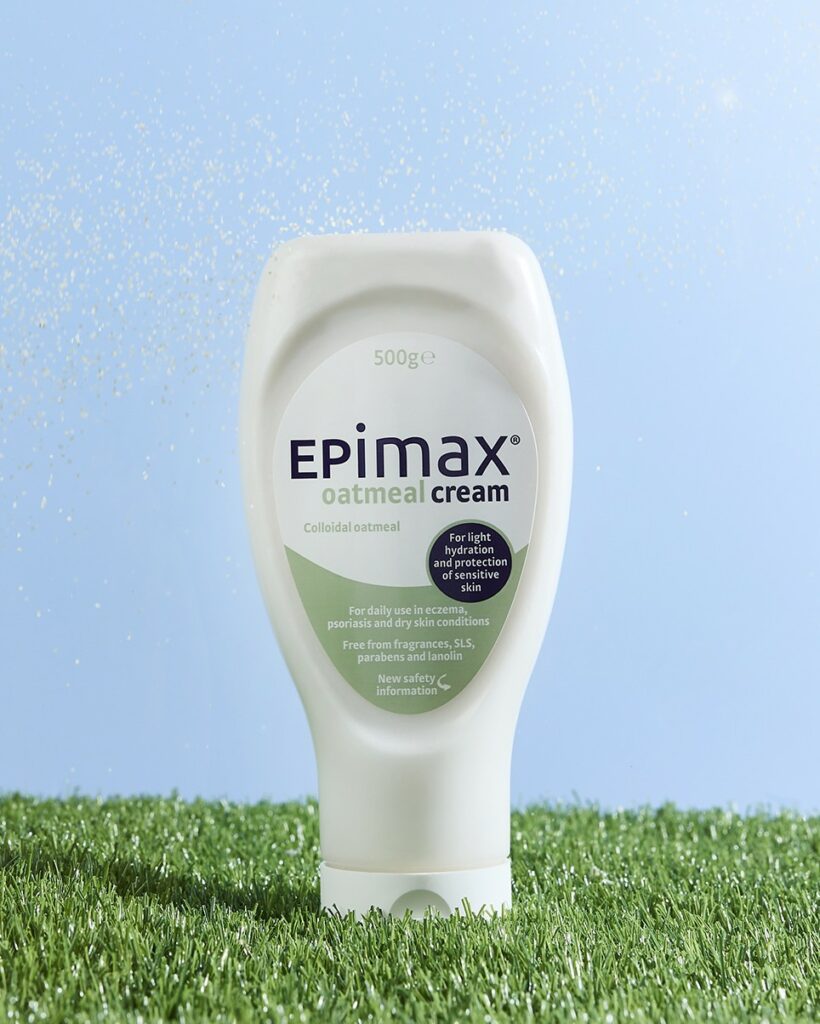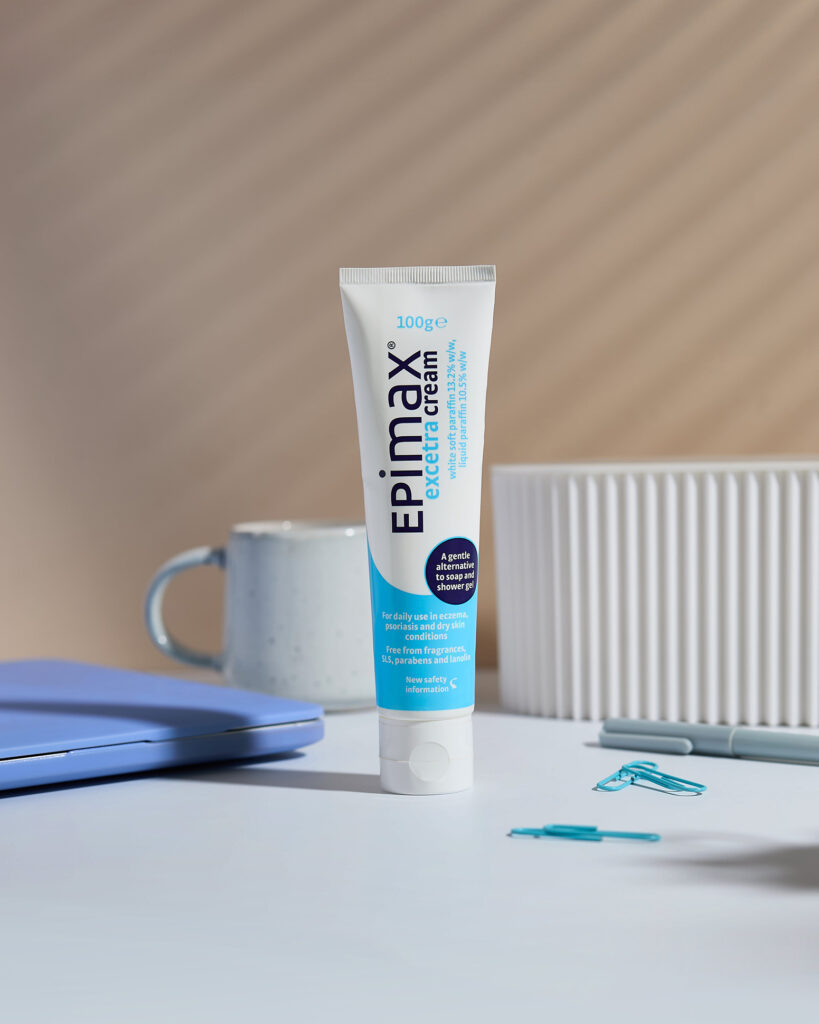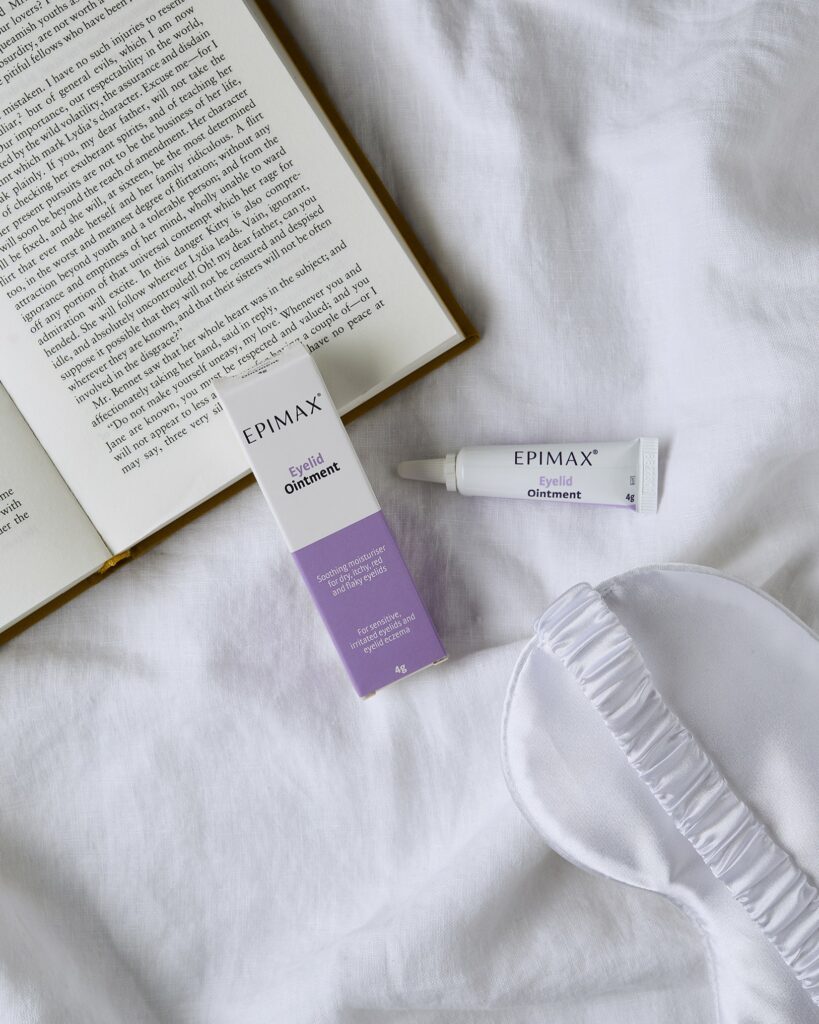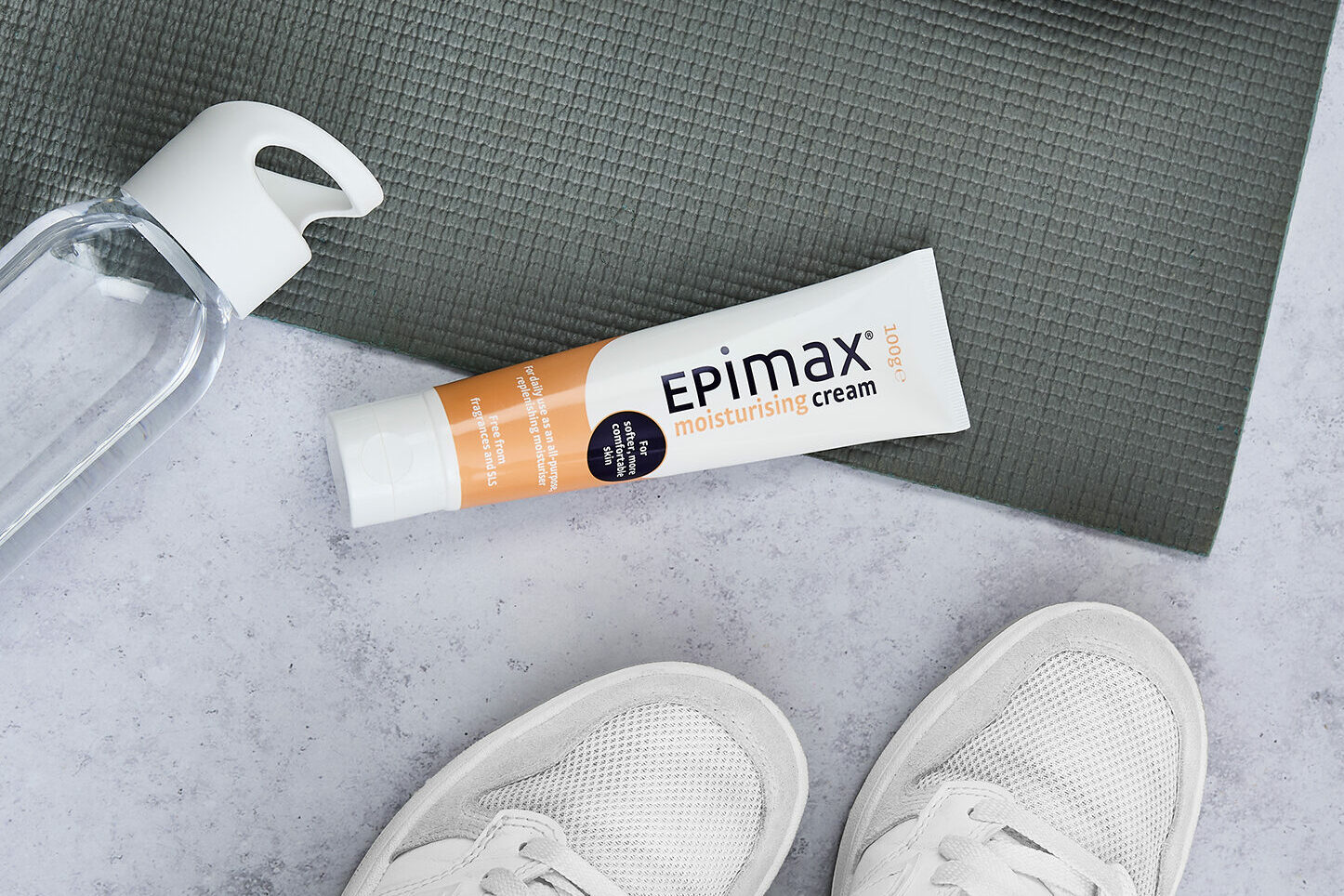Wellbeing is the state of being comfortable, healthy, and happy. Your state of wellbeing can be disrupted, or balanced, by many factors. Often, we are encouraged to introduce new behaviours and practices into our lives, without the consideration of their impact on skin health!
To mark ‘World Wellbeing Week’, we’ll be taking some common suggestions for improving your wellbeing and tailoring them to be more skin-friendly.
Exercise without aggravating your skin
Exercise is one of the best ways to look after our physical health and mental wellbeing, providing benefits such as increased self-confidence and lower stress and anxiety levels.1 However, for people with dry skin conditions, enjoying exercise is sometimes more of a challenge due to skin irritation, flare-ups and discomfort. So, what can you do to help keep your skin happy during and after workouts?
One of the biggest causes of skin irritation from exercise is sweating. Sweat mostly consists of water and salt, so when it evaporates, it can dry out your skin and cause irritation.2 To help avoid excess sweating, try to find a cool environment to work-out in, whether that be in a well-ventilated indoor space or outside during the morning or evening (when the temperature is lower): this will help prevent skin becoming too hot and irritated. 2
For additional relief from skin irritation, make sure to steer clear of tight-fitting gym gear, and instead wear looser cotton fabrics as they are more breathable.3 Make sure to wash your clothing after any exercise to clean away any irritants and bacteria before its next wear.
When choosing your exercise routine, make sure to consider your skin’s needs. During flare-ups, it’s best to avoid intense activities to prevent worsening skin symptoms.4 Listen to your body and choose exercises you feel won’t aggravate your condition.

Tips for spending time in the great outdoors!
Both hot and cold weather bring unique challenges for your skin but spending time outdoors and within nature can be brilliant for your mental and physical wellbeing!
Some people find that their eczema improves with exposure to sunlight, while others experience a worsening of their condition.5 Despite this, when preparing to spend time in the sun, everyone should remember to wear SPF! If you’re using an emollient, apply it 30 minutes before applying sunscreen.6 Finding shade outdoors will help you keep cool and help avoid damaging your skin.
When spending time outdoors in the cooler months, you also need to protect your skin. Protect sensitive areas like the face and hands by applying emollients regularly and avoiding lip-licking, which worsens dryness.6 Additionally, chose cold weather clothing items made of natural fabrics such as cotton and bamboo to prevent skin irritation.6 For tips on managing your skin in cold weather, read our ‘Dry skin in Winter’ blog post.

The workplace and wellbeing
Since many adults spend a large proportion of their time in work, it’s no surprise that the workplace can have a big impact on your health and wellbeing.7 Working environments expose people to certain skin triggers, such as stress, temperature and fragrances.8
Feeling itchy at work can be really distracting and uncomfortable: to help tackle this, try reapplying emollients throughout the day and if there is flexibility, opt to sit in a cooler part of the workplace (away from radiators and direct sunlight).8 If the itch is uncontrollable, take a break and try to distract yourself.8,9
If you can and feel comfortable enough to, it may good idea to disclose your skin condition to your employer. This means that you can begin to discuss adjustments to help you feel more comfortable at work.

Achieving a good night’s sleep
It is often said that getting good quality sleep is crucial for maintaining wellbeing, however, this is not always easy to achieve. The discomfort and itchiness associated with dry skin conditions can lead to disrupted sleep, significantly affecting quality of rest.
During the night, your skin loses more moisture than it does during the day, leading to increased dryness and itchiness.10 Additionally, the ‘itch sensation’ may feel more intense as there are less distractions while you are trying to sleep than during the day.11
To help break the Itch-scratch cycle during the night, why not try practicing mindfulness, meditation or breathing exercises to help redirect your focus and attention.11
For tips on how to create a healthy sleep space, read our blog: ‘Skin-Friendly Tips for Better Rest’.

- Myers, J. (2003) “Cardiology patient pages. Exercise and cardiovascular health,” Circulation (New York, N.Y.)
- https://allergyasthmanetwork.org/news/eczema-and-exercise/ (Accessed June 2025)
- https://nationaleczema.org/blog/eczema-exercise/ (Accessed June 2025)
- https://nationaleczema.org/blog/exercising-eczema/ (Accessed June 2025)
- https://eczema.org/information-and-advice/triggers-for-eczema/sun-and-eczema/ (Accessed June 2025)
- https://eczema.org/information-and-advice/triggers-for-eczema/weather-and-eczema/ (Accessed June 2025)
- https://www.gov.uk/government/publications/health-matters-health-and-work/health-matters-health-and-work (Accessed June 2025)
- https://eczema.org/information-and-advice/living-with-eczema/eczema-at-work/ (Accessed June 2025)
- https://www.newcastle-hospitals.nhs.uk/services/dermatology/patient-dermatology-information-leaflets/practical-tips-for-scratching/ (Accessed June 2025)
- https://www.healthline.com/health/itchy-skin-at-night (Accessed June 2025)
- https://www.psoriasis-association.org.uk/news/psoriasis-and-sleep-question-answer (Accessed June 2025)
EPI1010451HHH1_JUN2025
